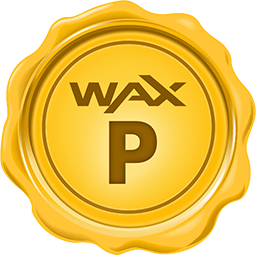-
 Bitcoin
Bitcoin $85,241.3100
0.88% -
 Ethereum
Ethereum $1,597.5221
0.89% -
 Tether USDt
Tether USDt $0.9998
-0.01% -
 XRP
XRP $2.0841
0.61% -
 BNB
BNB $590.1959
0.22% -
 Solana
Solana $139.3082
4.16% -
 USDC
USDC $0.9999
-0.01% -
 Dogecoin
Dogecoin $0.1580
1.99% -
 TRON
TRON $0.2418
-1.29% -
 Cardano
Cardano $0.6272
2.42% -
 UNUS SED LEO
UNUS SED LEO $9.3579
2.37% -
 Chainlink
Chainlink $12.7797
1.30% -
 Avalanche
Avalanche $19.5621
2.86% -
 Stellar
Stellar $0.2467
1.40% -
 Toncoin
Toncoin $2.9798
-0.36% -
 Shiba Inu
Shiba Inu $0.0...01214
1.76% -
 Hedera
Hedera $0.1661
0.58% -
 Sui
Sui $2.1403
1.35% -
 Bitcoin Cash
Bitcoin Cash $337.7260
2.14% -
 Hyperliquid
Hyperliquid $18.0656
8.27% -
 Polkadot
Polkadot $3.7297
0.81% -
 Litecoin
Litecoin $76.0123
0.66% -
 Dai
Dai $0.9999
-0.01% -
 Bitget Token
Bitget Token $4.4640
2.35% -
 Ethena USDe
Ethena USDe $0.9990
-0.01% -
 Pi
Pi $0.6448
5.54% -
 Monero
Monero $215.3607
-1.36% -
 Uniswap
Uniswap $5.2620
1.52% -
 OKB
OKB $50.8127
1.50% -
 Pepe
Pepe $0.0...07190
1.14%
What is NFT? How does blockchain support non-fungible tokens?
NFTs are unique, blockchain-verified digital assets, unlike fungible cryptocurrencies. Their ownership and authenticity are secured on various blockchains, each with different transaction costs and speeds. Creating and selling NFTs involves minting, marketplace listing, and marketing, requiring careful risk assessment.
Mar 14, 2025 at 11:40 am
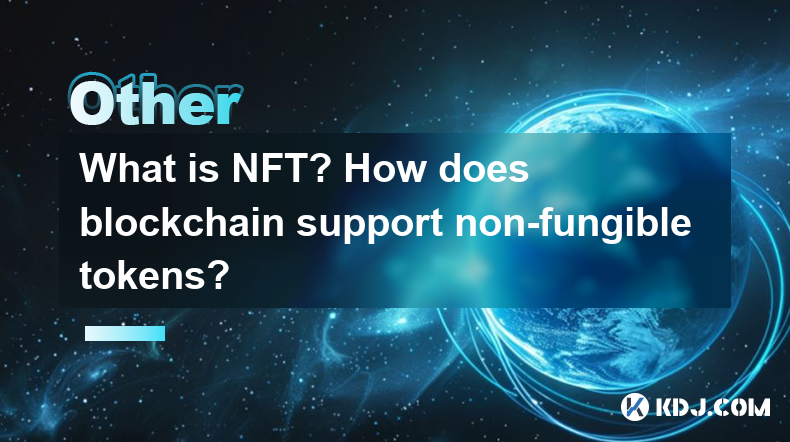
Key Points:
- NFTs are unique, non-interchangeable digital assets verified on a blockchain. Their uniqueness is their defining characteristic, unlike cryptocurrencies which are fungible.
- Blockchain technology provides the security, transparency, and immutability crucial for NFT existence and verification. It acts as a public ledger recording ownership and transaction history.
- Different blockchains support NFTs, each with its own strengths and weaknesses regarding transaction fees, speed, and scalability.
- Creating and selling NFTs involves several steps, including minting, listing on a marketplace, and marketing.
- Understanding the underlying technology and the potential risks is crucial before engaging with NFTs.
What is NFT?
Non-Fungible Tokens (NFTs) are unique digital assets representing ownership of something specific. Unlike cryptocurrencies like Bitcoin or Ethereum, which are fungible (interchangeable), each NFT is distinct and cannot be substituted for another. This uniqueness allows for the representation of digital or physical items, from digital art and collectibles to in-game items and real-world assets. The ownership and authenticity of an NFT are verified and secured through blockchain technology.
How does blockchain support non-fungible tokens?
Blockchain technology is the backbone of NFTs, providing the infrastructure necessary for their existence and secure trading. The immutable, decentralized nature of blockchain ensures that ownership records are transparent, verifiable, and tamper-proof. Every transaction involving an NFT is recorded on the blockchain, creating a permanent and auditable history of ownership. This eliminates the possibility of duplication or fraudulent claims.
Different Blockchain Networks for NFTs
Several blockchain networks support NFTs, each with its own characteristics. Ethereum, the most popular platform for NFTs, benefits from a large and established ecosystem. However, its high gas fees (transaction costs) can be a significant barrier. Other networks, like Solana, Tezos, and Flow, offer lower fees and potentially faster transaction speeds, but may have smaller communities and less established marketplaces. The choice of blockchain depends on factors like cost, speed, and the specific requirements of the NFT project.
The Process of Creating and Selling NFTs
Creating and selling an NFT involves several steps:
- Creating the digital asset: This could involve designing digital art, creating a 3D model, or even representing a physical item with a unique digital certificate.
- Choosing a blockchain: Select the appropriate blockchain network based on cost, speed, and community.
- Minting the NFT: This process involves creating a unique token on the chosen blockchain, associating it with the digital asset. This often involves using specialized software or platforms.
- Selecting a marketplace: Numerous NFT marketplaces exist, each with its own fees and features. Choosing the right one depends on the type of NFT and target audience.
- Listing the NFT: Once minted, the NFT is listed on the chosen marketplace with a price and description.
- Marketing and promotion: Effectively marketing the NFT is crucial for attracting buyers.
Understanding the Technology Behind NFTs
NFTs are built using smart contracts, self-executing contracts with the terms of the agreement directly written into code. These smart contracts automate the process of transferring ownership, ensuring that the transfer is secure and transparent. Understanding the basics of smart contracts and blockchain technology is vital for anyone involved in the NFT space.
Security and Risks Associated with NFTs
While blockchain technology offers significant security benefits, NFTs are not without risk. Scams and fraudulent projects are prevalent. Buyers should always conduct thorough due diligence before purchasing an NFT. This includes researching the project team, understanding the utility of the NFT, and verifying the authenticity of the NFT on the blockchain. Furthermore, the volatility of the cryptocurrency market can significantly impact the value of NFTs.
Common Questions and Answers:
Q: Are NFTs only for digital art?
A: No, NFTs can represent various digital and physical assets, including music, videos, collectibles, virtual real estate, and even physical items like artwork or tickets.
Q: How is the ownership of an NFT proven?
A: Ownership is proven through the blockchain. Each transaction is recorded on the public ledger, providing a verifiable history of ownership.
Q: What are the risks involved in buying NFTs?
A: Risks include scams, market volatility, and the potential for the NFT's value to decline. Thorough research and due diligence are essential.
Q: How much does it cost to create an NFT?
A: The cost varies depending on the blockchain used, the marketplace fees, and any additional services used during the minting process. Gas fees on Ethereum, for instance, can be substantial.
Q: Can I sell my NFT after I buy it?
A: Yes, NFTs are generally freely tradable on marketplaces. However, the price will fluctuate based on market demand.
Q: What are gas fees?
A: Gas fees are transaction fees paid to miners or validators on the blockchain network to process NFT transactions. They can vary significantly depending on network congestion.
Q: What is the difference between fungible and non-fungible tokens?
A: Fungible tokens are interchangeable (e.g., cryptocurrencies), while non-fungible tokens are unique and cannot be substituted for one another.
Q: Are NFTs environmentally friendly?
A: The environmental impact of NFTs depends heavily on the blockchain used. Some blockchains are more energy-efficient than others. This is an ongoing concern within the NFT space.
Disclaimer:info@kdj.com
The information provided is not trading advice. kdj.com does not assume any responsibility for any investments made based on the information provided in this article. Cryptocurrencies are highly volatile and it is highly recommended that you invest with caution after thorough research!
If you believe that the content used on this website infringes your copyright, please contact us immediately (info@kdj.com) and we will delete it promptly.
- Renowned Author Robert Kiyosaki Forecasts Bitcoin (BTC) Price Could Skyrocket to $1 Million by 2035
- 2025-04-19 19:30:13
- A Modest Investment of $500 Today Could Potentially Grow into $2 Million by 2026
- 2025-04-19 19:30:13
- Bitcoin (BTC) and Ethereum (ETH) Options Expiry Today: Brace for Volatility
- 2025-04-19 19:25:14
- Ethereum Today Reacts To Base Tweet Frenzy
- 2025-04-19 19:25:14
- Michael Saylor's Bitcoin Playbook
- 2025-04-19 19:20:15
- Bitcoin (BTC) and Ethereum (ETH) ETFs Show Divergent Flows As BTC ETFs Gain 1,147 BTC
- 2025-04-19 19:20:15
Related knowledge
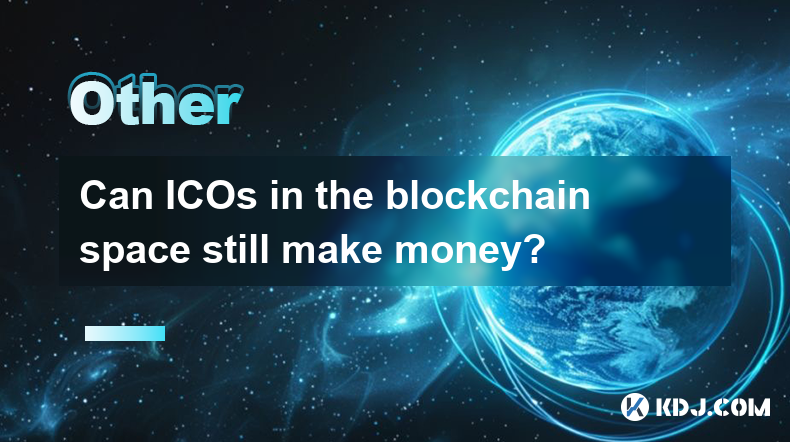
Can ICOs in the blockchain space still make money?
Apr 17,2025 at 08:29pm
The landscape of Initial Coin Offerings (ICOs) in the blockchain space has evolved significantly since their peak in 2017 and 2018. Despite the increased regulatory scrutiny and the rise of alternative fundraising methods like Security Token Offerings (STOs) and Initial Exchange Offerings (IEOs), ICOs can still be a viable way to raise funds and generat...
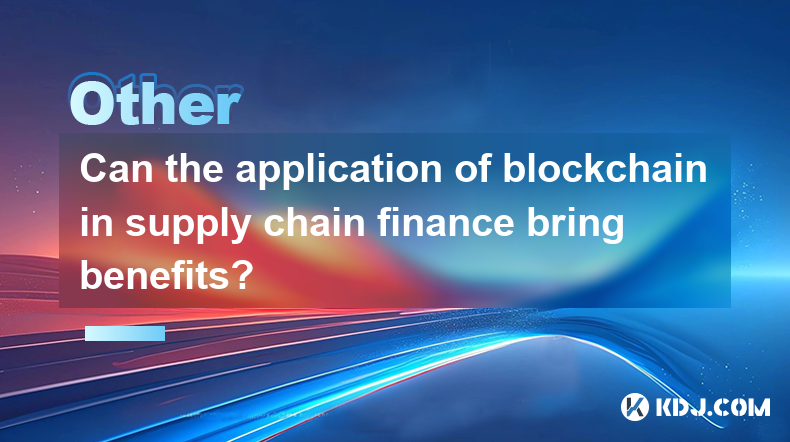
Can the application of blockchain in supply chain finance bring benefits?
Apr 15,2025 at 04:00pm
Can the application of blockchain in supply chain finance bring benefits? The integration of blockchain technology into supply chain finance has garnered significant attention in the cryptocurrency and financial sectors. This article explores how blockchain can potentially revolutionize supply chain finance, detailing its benefits and providing a compre...

Does the ranking of Chinese blockchain apps include cross-chain applications?
Apr 14,2025 at 04:00pm
The ranking of Chinese blockchain apps is a comprehensive evaluation that takes into account various aspects such as user base, transaction volume, and technological innovation. A pertinent question arises regarding whether these rankings include cross-chain applications. Cross-chain applications, which allow different blockchain networks to interact an...
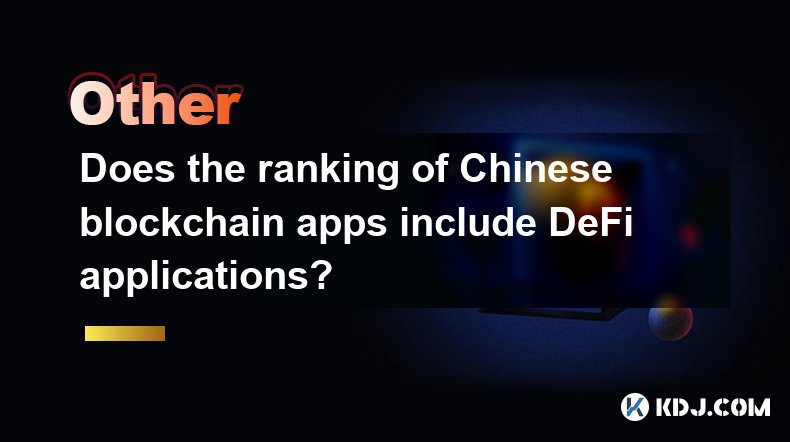
Does the ranking of Chinese blockchain apps include DeFi applications?
Apr 15,2025 at 06:57am
The ranking of Chinese blockchain apps is a comprehensive list that showcases the most popular and influential applications within the cryptocurrency ecosystem. One question that often arises is whether these rankings include DeFi applications. To answer this, we need to delve into the specifics of how these rankings are compiled and what types of appli...
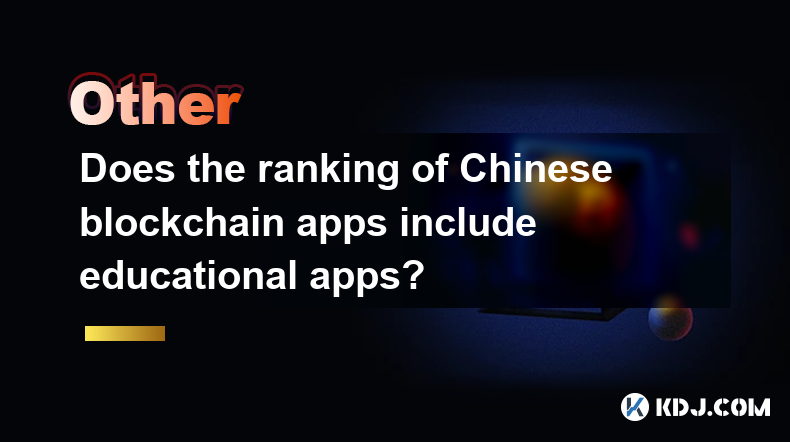
Does the ranking of Chinese blockchain apps include educational apps?
Apr 16,2025 at 03:35am
The ranking of Chinese blockchain apps often includes a variety of categories, from finance and gaming to social networking and beyond. One question that frequently arises is whether these rankings include educational apps. To address this, we need to delve into the specifics of how blockchain apps are categorized and ranked in China, and whether educat...
Does the ranking of Chinese blockchain apps include enterprise-level applications?
Apr 15,2025 at 06:42am
The ranking of Chinese blockchain apps often includes a variety of applications, ranging from consumer-focused to enterprise-level solutions. Understanding the scope and criteria for these rankings is essential to determine if enterprise-level applications are included. This article delves into the specifics of how Chinese blockchain app rankings are co...

Can ICOs in the blockchain space still make money?
Apr 17,2025 at 08:29pm
The landscape of Initial Coin Offerings (ICOs) in the blockchain space has evolved significantly since their peak in 2017 and 2018. Despite the increased regulatory scrutiny and the rise of alternative fundraising methods like Security Token Offerings (STOs) and Initial Exchange Offerings (IEOs), ICOs can still be a viable way to raise funds and generat...

Can the application of blockchain in supply chain finance bring benefits?
Apr 15,2025 at 04:00pm
Can the application of blockchain in supply chain finance bring benefits? The integration of blockchain technology into supply chain finance has garnered significant attention in the cryptocurrency and financial sectors. This article explores how blockchain can potentially revolutionize supply chain finance, detailing its benefits and providing a compre...

Does the ranking of Chinese blockchain apps include cross-chain applications?
Apr 14,2025 at 04:00pm
The ranking of Chinese blockchain apps is a comprehensive evaluation that takes into account various aspects such as user base, transaction volume, and technological innovation. A pertinent question arises regarding whether these rankings include cross-chain applications. Cross-chain applications, which allow different blockchain networks to interact an...

Does the ranking of Chinese blockchain apps include DeFi applications?
Apr 15,2025 at 06:57am
The ranking of Chinese blockchain apps is a comprehensive list that showcases the most popular and influential applications within the cryptocurrency ecosystem. One question that often arises is whether these rankings include DeFi applications. To answer this, we need to delve into the specifics of how these rankings are compiled and what types of appli...

Does the ranking of Chinese blockchain apps include educational apps?
Apr 16,2025 at 03:35am
The ranking of Chinese blockchain apps often includes a variety of categories, from finance and gaming to social networking and beyond. One question that frequently arises is whether these rankings include educational apps. To address this, we need to delve into the specifics of how blockchain apps are categorized and ranked in China, and whether educat...

Does the ranking of Chinese blockchain apps include enterprise-level applications?
Apr 15,2025 at 06:42am
The ranking of Chinese blockchain apps often includes a variety of applications, ranging from consumer-focused to enterprise-level solutions. Understanding the scope and criteria for these rankings is essential to determine if enterprise-level applications are included. This article delves into the specifics of how Chinese blockchain app rankings are co...
See all articles




















































































